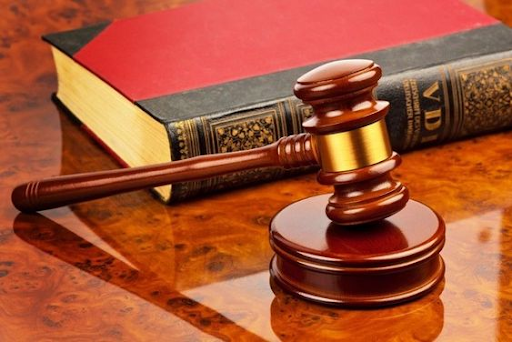Background Checks for Employment: What You Need to Know
In today’s competitive job market, background checks are essential for verifying a candidate's credentials, ensuring workplace safety, and selecting the best individuals. Employers use these checks to confirm information about criminal records, employment history, education, and more. This guide explores what background checks involve, their importance, and what employers look for, helping job seekers in Sydney and beyond to better prepare for their job search.
Introduction to Background Checks for Employment
What Are Background Checks?
Background checks are systematic investigations conducted by employers to verify the accuracy of a candidate’s credentials and history. These checks can encompass a wide range of areas, including
criminal records, employment history, education, credit reports, and references. By performing these checks, employers aim to confirm that candidates are truthful about their qualifications and to identify any potential red flags that could impact their suitability for the job.
Why Employers Conduct Background Checks
The primary reasons employers conduct background checks are to maintain workplace safety, ensure the integrity of their hiring process, and verify the accuracy of the information provided by candidates. Background checks help employers:
- Verify Credentials: Ensure that candidates have the qualifications, experience, and education they claim.
- Protect the Workplace: Identify any history of criminal behavior or other issues that could pose a risk to employees and the company.
- Reduce Liability: Mitigate the risk of negligent hiring lawsuits by thoroughly vetting candidates.
- Enhance Decision Making: Make informed hiring decisions based on comprehensive information about a candidate’s background.
Types of Background Checks for Employment
Criminal Record Checks
Criminal background checks are among the most common types of pre-employment screenings. These checks help employers identify any past criminal activities, including felonies, misdemeanors, and other legal infractions. In Sydney, and across Australia, employers often use police records to verify a candidate’s criminal history.
Employment History Verification
Verifying a candidate’s employment history involves checking the accuracy of the job titles, responsibilities, and durations of previous employment. This type of verification helps employers confirm that candidates have the work experience they claim and that there are no gaps or discrepancies in their job history.
Education Verification
Education verification ensures that candidates have the degrees and certifications they list on their resumes. This process involves contacting educational institutions to confirm the authenticity of the candidate’s academic achievements. Employers rely on education verification to ensure that candidates meet the required educational qualifications for the position.
Credit Checks
Credit checks provide employers with insights into a candidate’s financial responsibility and stability. While not always part of the standard background check, credit reports can be crucial for positions that involve financial management or access to sensitive financial information. Employers look at credit history to assess potential risks related to financial irresponsibility.
Reference Checks
Reference checks involve contacting the professional references provided by the candidate to gather information about their work ethic, skills, and character. This step helps employers gain a better understanding of how the candidate performed in previous roles and whether they would be a good fit for the new position.
The Background Check Process
How Employers Conduct Background Checks
The background check process typically begins after a conditional job offer has been made. Employers either conduct the checks in-house or hire third-party background screening companies to handle the process. The steps generally include:
- Candidate Notification: Informing the candidate about the background check and obtaining their consent.
- Data Collection: Gathering information from various sources such as police records, educational institutions, previous employers, and credit bureaus.
- Verification: Cross-referencing the collected data with the information provided by the candidate.
- Analysis: Reviewing the results to identify any discrepancies or red flags.
- Reporting: Compiling a comprehensive report for the hiring manager’s review.
Legal Considerations and Compliance
Employers must adhere to legal requirements and regulations when conducting background checks. In Australia, background checks must comply with the Privacy Act 1988 and other relevant legislation. Employers must ensure that they have a legitimate reason for conducting the checks and that they handle the candidate’s information with care and confidentiality.
Applicant Consent and Rights
Candidates have rights regarding background checks, including the right to be informed about the check, the right to consent to the check, and the right to know the results. Employers must obtain explicit consent from candidates before conducting background checks. Candidates also have the right to dispute any incorrect information found during the check.
Interpreting Background Check Results
What Employers Look For
When interpreting background check results, employers look for several key factors:
- Consistency: Ensuring that the information provided by the candidate matches the findings of the background check.
- Relevance: Evaluating whether any discrepancies or issues are relevant to the job position.
- Severity: Considering the severity and context of any negative findings, such as the nature and recency of a criminal offense.
How Results Affect Hiring Decisions
The impact of background check results on hiring decisions varies depending on the nature of the findings. For instance, a minor discrepancy in employment dates may not be as critical as a serious criminal offense. Employers typically weigh the results against the job requirements and make decisions based on the overall suitability of the candidate.
Common Myths About Background Checks
Myth vs. Reality
There are several misconceptions about background checks that can cause unnecessary anxiety for job seekers. Here are a few common myths debunked:
- Myth: Background checks only look for criminal records. Reality: Background checks can include employment history, education verification, credit reports, and reference checks.
- Myth: Employers need to find something negative to reject a candidate. Reality: Background checks are used to verify information and ensure suitability, not to find reasons to reject candidates.
- Myth: A poor credit history will always disqualify a candidate. Reality: Credit history is only one factor considered and may not be relevant for all positions.
Conclusion
Background checks play a critical role in the hiring process, helping employers verify candidate information, ensure workplace safety, and make informed hiring decisions. By understanding the various types of background checks, the process involved, and the legal considerations, job seekers can better prepare for this important step in their job search. Being aware of your rights and the common myths about background checks can also help alleviate any concerns and ensure a smoother hiring process.
For more information about background checks and how they impact employment in Sydney, visit Sydney Private Investigators.
FAQs About Background Checks for Employment
Why do employers conduct background checks?
Employers conduct background checks to verify candidate information, ensure workplace safety, and select the most suitable individuals for the job.
What information is included in a background check for employment?
A background check can include criminal records, employment history, education verification, credit reports, and reference checks.
How long does the background check process take?
The background check process can take anywhere from a few days to several weeks, depending on the scope of the check and the availability of information.
What can cause a background check to fail?
A background check can fail if significant discrepancies or red flags are found, such as a serious criminal record, falsified employment history, or poor credit report.
Do employers need my permission to conduct a background check?
Yes, employers must obtain your explicit consent before conducting a background check.




